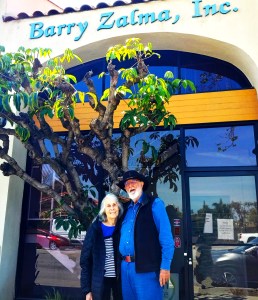Overcharge of Force Placed Insurance Defense to Foreclosure

Post 4802
See the full video at https://rumble.com/v4vcpnq-overcharge-of-force-placed-insurance-defense-to-foreclosure.html and at https://youtu.be/iTueweyOWIw
In an action to foreclose a mortgage the trial court granted in part the plaintiff’s motion to strike the defendant’s special defenses and counterclaim; subsequently, the court, Cirello, J., granted the plaintiff’s motion for summary judgment as to liability only; thereafter, the court, Spader, J., rendered judgment of foreclosure by sale, and the defendant appealed.
In M&T Bank v. Robert R. Lewis, No. SC 20817, Supreme Court of Connecticut (April 30, 2024) the appeal of a foreclosure judgment presented one question important to insurance professionals: Whether allegations of impropriety in a mortgagee’s force placement of property insurance arise from the making, validity or enforcement of the mortgage for purposes of a special defense to a foreclosure action.
FACTS
Robert R. Lewis claimed that the trial court improperly granted the plaintiff’s motion to strike two of the defendant’s special defenses arising from the plaintiff’s conduct in its force placement of flood insurance on the property at issue, alleging that the plaintiff had unclean hands and breached the implied covenant of good faith and fair dealing on the ground that those defenses do not arise from the making, validity or enforcement of the mortgage.
After the defendant failed to make his monthly payment on August 1, 2017, the plaintiff notified him in writing of his default. The plaintiff subsequently elected to accelerate the note and foreclose on the mortgage. The parties participated in the state’s court-supervised foreclosure mediation program but were unable to reach an agreement to modify the loan.
The trial court granted the plaintiff’s motion for summary judgment as to liability only.
DISCUSSION
Defendant’s claim that the trial court improperly granted in part the plaintiff’s motion to strike the defendant’s special defenses of unclean hands and breach of the implied covenant of good faith and fair dealing predicated on the plaintiff’s improprieties in the force placement of the flood insurance, do not ”arise from the making, validity or enforcement” of the mortgage.
In the present case, the trial court struck the special defenses of unclean hands and breach of the implied covenant of good faith and fair dealing on the ground that the defendant’s allegations did not relate to ”the specific mortgage at issue in this case.” (Emphasis added.)
The question remains whether those allegations are sufficiently related to the making, validity or enforcement of the mortgage. The Supreme Court concluded that they are. The defendant alleges, the plaintiff charged the defendant an amount greater than the ”cost” of the insurance, in violation of section 5 of the mortgage agreement, concealed a ”kickback” agreement that it had with ASIC. All of this alleged conduct is directly related to the plaintiff’s reliance on and enforcement of section 5 of the mortgage agreement.
The Supreme Court noted that the alleged effect of the plaintiff’s conduct in enforcing section 5 of the mortgage agreement-that it wrongfully increased the defendant’s overall debt-provides a sufficient nexus to the foreclosure action. Defendant’s allegations in support of the special defenses are sufficiently connected to the enforcement of the mortgage.
Since an action to foreclose a mortgage is an equitable proceeding it is a fundamental principle of equity jurisprudence that for a plaintiff to show that he is entitled to the benefit of equity he must establish that he comes into court with clean hands. The clean hands doctrine is applied not for the protection of the parties but for the protection of the court. It is applied not by way of punishment but on the basis of considerations that make for the advancement of right and justice. A mortgagor who has defaulted on a mortgage is not precluded from asserting the special defense of unclean hands. Therefore, the Supreme Court took the Defendants allegations as true it concluded that the defendant alleged willful conduct that is not equitable, fair or honest.
The defendant sufficiently pleaded that the plaintiff’s alleged misrepresentations interfered with his right to receive the benefits of the agreement. This Defendant did by alleging that the plaintiff’s kickback scheme wrongfully resulted in the defendant’s payment of more than he was obligated to pay and more than the plaintiff was entitled to charge him, pursuant to the mortgage agreement.
By alleging that Plaintiff’s conduct with force placed insurance increased his overall debt the trial court improperly struck the special defenses.
Insurance is important to every mortgagee needing it to protect the security for the loan. Mortgages require insureds to obtain insurance and allow, if they fail, to obtain force placed insurance that only protects the mortgagee at the expense of the insured. However, the mortgagee should never charge the insured more than it pays since that would be fraudulent and, as in this case, a defense to the foreclosure.

(c) 2024 Barry Zalma & ClaimSchool, Inc.
Please tell your friends and colleagues about this blog and the videos and let them subscribe to the blog and the videos.
Subscribe to my substack at https://barryzalma.substack.com/subscribe
Go to X @bzalma; Go to Newsbreak.com https://www.newsbreak.com/@c/1653419?s=01; Go to Barry Zalma videos at Rumble.com at https://rumble.com/c/c-262921; Go to Barry Zalma on YouTube- https://www.youtube.com/channel/UCysiZklEtxZsSF9DfC0Expg.
Go to the Insurance Claims Library – https://lnkd.in/gwEYk.
Like this:
Loading…
Related
About Barry Zalma
An insurance coverage and claims handling author, consultant and expert witness with more than 48 years of practical and court room experience.







